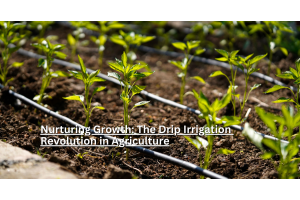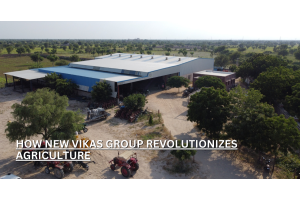
Introduction
In today's fast-paced world, more and more people are turning to organic farming methods to cultivate their crops. Organic farming is not just a trend; it's a sustainable approach that prioritizes the health of the environment and the well-being of consumers. As an organic farmer, you play a crucial role in nurturing the earth and growing healthy, chemical-free crops. In this blog post, we will explore the principles of organic farming, its benefits, and essential practices for becoming a successful organic farmer. Let's dive in!
1. Understanding Organic Farming:
Organic farming is a holistic approach that emphasizes the use of natural inputs and techniques to enhance soil fertility, control pests, and promote the overall health of the ecosystem. Unlike conventional farming, which relies heavily on synthetic fertilizers and pesticides, organic farming embraces methods that work in harmony with nature.
2. Benefits of Organic Farming:
a) Environmental Benefits: Organic farming minimizes soil erosion, conserves water resources, and protects biodiversity. By avoiding synthetic chemicals, it prevents water and soil contamination, ensuring a cleaner and healthier environment.
b) Health Benefits: Organic crops are grown without the use of synthetic pesticides, herbicides, or genetically modified organisms (GMOs). As a result, they are free from harmful residues, making them safer and healthier for consumption.
c) Taste and Nutrition: Studies have shown that organic crops often contain higher levels of essential nutrients and antioxidants. They are also known for their superior taste and flavor, providing a more satisfying culinary experience.
3. Essential Practices for Organic Farming Success:
a) Soil Management: Focus on building and maintaining healthy soil through practices like composting, crop rotation, and cover cropping. Healthy soil fosters nutrient-rich crops and reduces the risk of diseases.
b) Natural Pest and Weed Control: Embrace integrated pest management (IPM) techniques that rely on natural predators, beneficial insects, and cultural practices to control pests and weeds.
c) Crop Diversity: Diversify your crops to promote ecological balance, reduce disease incidence, and increase resilience against environmental stresses.
d) Conservation of Resources: Efficient water management, energy conservation, and waste reduction are crucial aspects of organic farming. Implement practices like rainwater harvesting and using renewable energy sources to minimize your environmental impact.
4. Certification and Marketing:
To gain consumer trust and access organic markets, consider obtaining organic certification. Certification ensures that your farming practices meet the required organic standards and helps differentiate your products in the market. Additionally, create strong relationships with local communities, farmers' markets, and organic retailers to market your organic produce effectively.
Conclusion:
As an organic farmer, you have the power to make a positive impact on the environment and contribute to healthier food systems. By adopting organic farming practices, you nurture the earth, promote biodiversity, and provide consumers with safe and nutritious crops. Embrace the principles of organic farming, implement essential practices, and share the story of your journey as an organic farmer. Together, let's create a sustainable future where the earth and our crops thrive in harmony.





